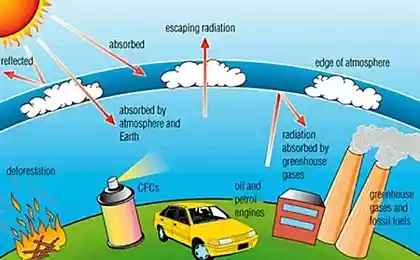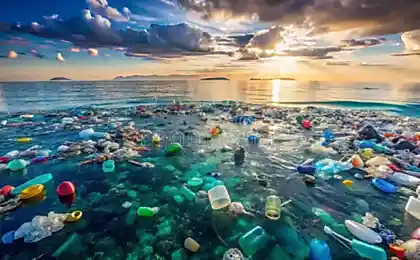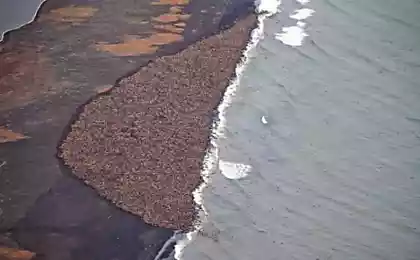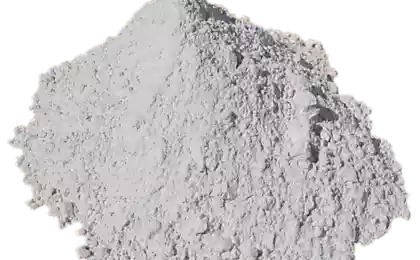400
The Arctic ice need to be cleaned

But the study, which was published in the journal Earth's Future, says that particles of plastics are contained not only in the oceans but also in the Arctic ice. Trillions of these microparticles in the near future will be in the waters of the Arctic ocean due to melting ice caused by global warming.
Scientists have studied the Arctic ice with a thickness of 1-5 meters, which is two to five years. Sampling was conducted from 2005 to 2010. Then, in laboratory conditions, ice melt, and the formed water was passed through a thin filter. In the filter remained particles of plastic the size of a pinhead, also polyester and nylon. In General, each cubic meter of ice contained from 38 to 238 particles of plastics.
According to Rachel, microparticles of plastics was primarily formed as a result of the destruction of larger pieces of plastics, sinks and washing machines. The basic ways of transferring micro-particles of plastics in the waters of the Arctic ocean are the ocean currents of the Atlantic and Pacific oceans. In winter, these microparticles freezes into ice. In summer, the melting of the ice particulates are in oceanic waters.
Source: greenevolution.ru
Scientists have created thermopolymer that can be used for cooling electronic devices
Scientists tablets and smartphones contribute to obesity























